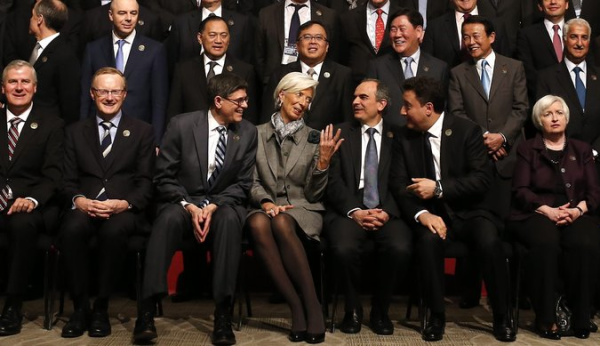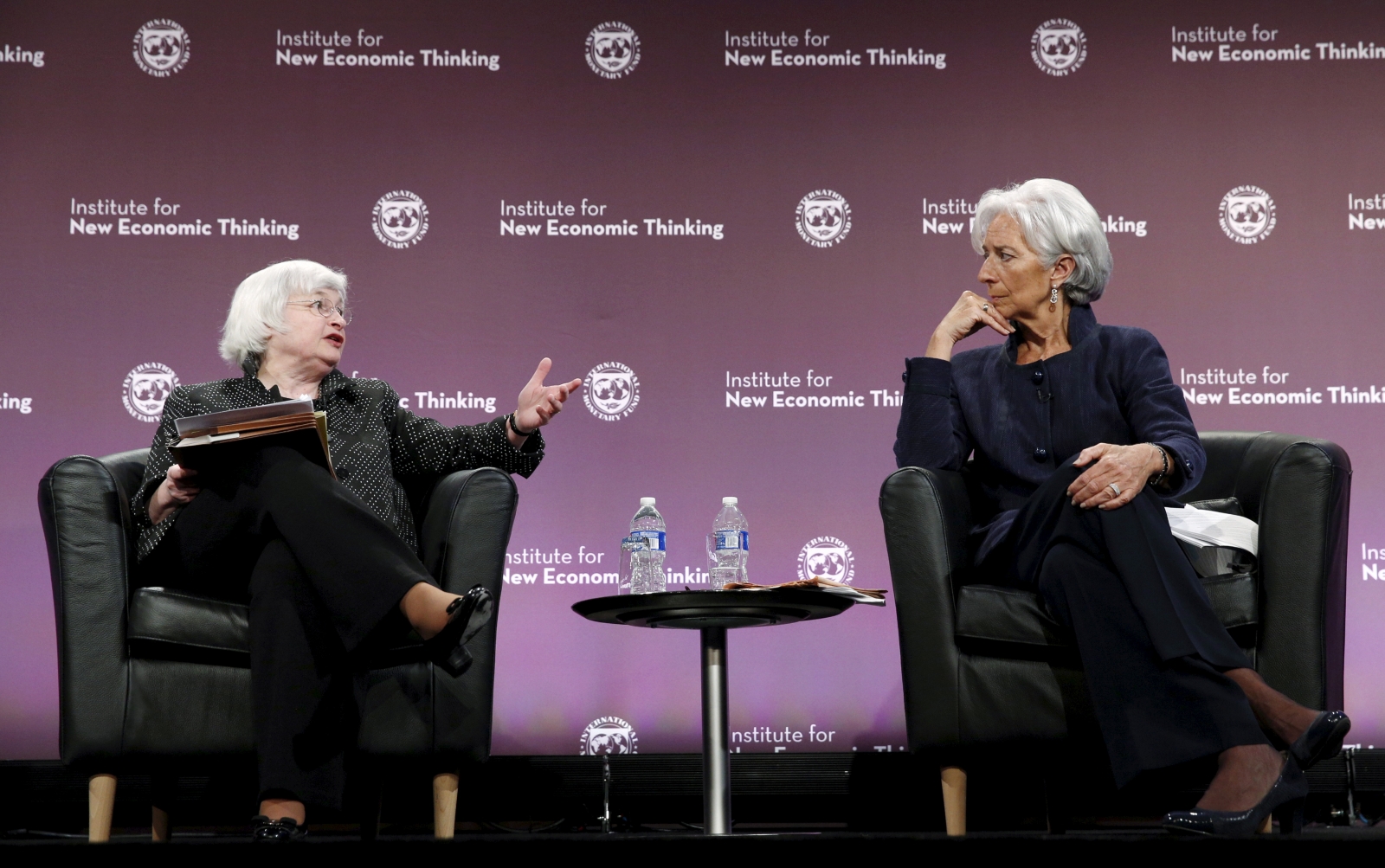Australia’s economic record is a world beater. Not fantastic but outstanding. While all around have succumbed to the flood at some point in the last quarter century Australia alone has kept its nostrils above the rising deluge of recession.
If only narrowly at points, it has grown sustainably through good times and kept expanding enough in the bad. Even in global extremis. As Peter Costello notes, financial crises – and they come no bigger than 2008 – are so designated because institutions become stressed and fail. The results are calamitous with a financial contagion rippling through communities.
Yet in Australia, not one of our major banks failed during the GFC, and remarkably, none even ended up trading at a loss. What’s more, despite the brutality of the GFC elsewhere, Australia’s official unemployment rate never exceeded 6 per cent.That was the greatest achievement of the pre-emptive Rudd-Swan stimulus – keeping consumers spending, and employers employing.
Yet in Australia, not one of our major banks failed during the GFC, and remarkably, none even ended up trading at a loss.
But while that was brilliant, the country’s progress on other fronts in 26 years since the last recession of 1991, has been more mixed. The breadcrumb trail of positive economic numbers only ever maps part of the journey. Socially, politically, even scientifically, the Australian landscape is patchier.
Note for example, the list of treasurers since the 1990-91 recession: Paul Keating, John Kerin, Ralph Willis, John Dawkins, Peter Costello, Wayne Swan, Chris Bowen, Joe Hockey, and Scott Morrison. Then add to these names, those of their public service partners in this worthy endeavour, the secretaries of the Department of Treasury itself and the august governors of the Reserve Bank of Australia. Treasury lions like Bernie Fraser, Chris Higgins, Tony Cole, Ted Evans, Ken Henry, Martin Parkinson, and John Fraser, and atop the RBA: Bernie Fraser (again); Ian Macfarlane; Glenn Stevens; and Phillip Lowe.
Remember, these three posts represent the supreme triumvirate of economic positions nationally. All have been held by men. Exclusively. It’s a uniformity that cannot be brushed off as the blind operation of the merit principle. At the commonwealth level, Australia has never had a female treasurer, nor a woman as secretary of Treasury, nor for that matter, a female governor of the Reserve Bank.
Even with the advent of the infamous “revolving door prime ministership”, there has been just one female occupant of The Lodge, Julia Gillard. And until very recently, there had been just one female as a senior economic bureaucrat, former Department of Finance secretary, Jane Halton.
 Halton at least was replaced by another exemplary woman in Rosemary Huxtable at Finance, fuelling hopes that things are finally changing. “These are still hard yards though even if progress is being made,” Halton tells Fairfax Media, now ensconced in the private sector. “You can do all the unconscious bias workshops and all of that but I’m a big believer too in the “just do it” principle – ultimately, that’s what is needed, to just get on and appoint some of the very competent women now hovering near the top of the Treasury and Finance departments.”
Halton at least was replaced by another exemplary woman in Rosemary Huxtable at Finance, fuelling hopes that things are finally changing. “These are still hard yards though even if progress is being made,” Halton tells Fairfax Media, now ensconced in the private sector. “You can do all the unconscious bias workshops and all of that but I’m a big believer too in the “just do it” principle – ultimately, that’s what is needed, to just get on and appoint some of the very competent women now hovering near the top of the Treasury and Finance departments.”
That this gender lock-out has occasioned so little disquiet speaks to its essential cultural consistency. Few want to admit that the system is rigged so silently but effectively that it has given men a 100 per cent success record whenever posts in the hard-edged world of economic policy are on offer.
While Gillard’s success presaged a new spring, the acrimony framing her tenure and the often gendered barbs of her decline, made it feel more like an Arctic winter – the sun barely above the horizon before the normal gloom returned. Tony Abbott named just one female in his first 19-member cabinet. Malcolm Turnbull did better with 6 but then lost one when Sussan Ley resigned. Several competent women remained on the wait list, as Turnbull moved to accommodate more pressing political forces.
While Gillard’s success presaged a new spring, the acrimony framing her tenure and the often gendered barbs of her decline, made it feel more like an Arctic winter – the sun barely above the horizon before the normal gloom returned.
As of the last election, just 13 of the 76 Coalition lower house seats are held by women. Unambiguously, this is an area where Australia lags comparable countries. Last year, Canada’s Justin Trudeau respected the mores of his national electorate naming a 30-member cabinet with a 50-50 gender split. France’s new president Emmanuel Macron has done the same keeping his pledge to name a 50-50 split of men-women in his first ministry.
Even Afghanistan’s legislature has moved to a minimum 25 per cent female quota.
And if women are ill-suited to economic leadership, nobody told Janet Yellen who is chair of the US Federal Reserve, or IMF CEO Christine Lagarde, or for that matter, Angela Merkel or Theresa May. Australia’s social tardiness is matched in other areas too, such as marriage reform, where ostensibly more conservative countries have advanced.

In climate policy, a febrile political class has talked itself to a despairing stand-still characterised by a science-denying fringe and a prime minister more inclined to appease internal opponents that meet previously stated convictions.
And what about Indigenous reconciliation? The current boom matches the period since High Court’s landmark Mabo decision and represents half the time since the 1967 referendum. Yet progress has been glacially slow. Economic advancement illusory for all but the few. Even within the economic sphere, advances have brought downsides, such as the rising sense of that the foundations of one’s life are made of sand.
As the eminent social researcher Rebecca Huntley noted in her recent book Still Lucky: “The realisation of the end of job security has come slowly, over decades; it is now seen as a fait accompli, worse for some than others but a reality for all.”
This “reality for all” may be the new normal but it brings political ramifications. It is characterised by feelings of dislocation, and mounting resentment at the disconnect between the official statistics and the actual cost of living.
In the US it has created the angry, frequently misogynist Trump phenomenon and in Australia, One Nation, along with growing populist tendencies in the mainstream parties. The challenge now is to reconcile the politics with the economics. The cold numbers with the people those numbers can only partially describe.
This is an edited version of a piece which appeared in the Sydney Morning Herald and The Age on June 4th.




